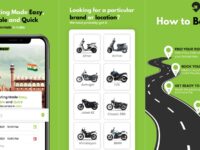Building Your Remote Development Dream Team: Steps to Picking the Right Agency
In today’s digital era, remote teams are a cornerstone of business success. Taping into a global talent pool provides unprecedented opportunities for innovation and efficiency. However, building a remote development dream team is no small feat—it requires careful consideration and strategic decision-making. This comprehensive guide will explore the crucial steps to help you pick the right agency for your remote development needs.
- Define Your Project Scope and Goals
It’s crucial to clearly understand your project scope and goals before choosing a remote development agency. Clearly outline the functionalities, features, and overall objectives of your project. Identify the technologies and skills required and any specific industry standards or compliance needs. This foundational step will be a compass throughout the selection process, ensuring you choose an agency with the right expertise and experience.
- Assess Your Budget and Timeline
Establishing a realistic budget and timeline for remote development is crucial to achieving cost savings. Setting a realistic budget and timeline for remote development is vital for cost savings. Consider hourly rates, project complexity, and potential additional costs. Be transparent about your financial constraints, and look for an agency that can deliver quality within your budgetary limitations. Additionally, clarify your project timeline and discuss the agency’s capacity to meet your deadlines. A well-managed budget and timeline are critical for a successful collaboration.
- Research and Shortlist Potential Agencies
Research several potential companies if you are looking for a remote development agency. When searching for an agency, prioritise those with a proven track record in your industry and expertise in the necessary technologies for your project. When considering which agency to choose, you should consider various factors such as client testimonials, case studies, and online reviews. After reviewing the factors, list agencies that meet your project requirements and values.
- Evaluate Technical Expertise
Technical proficiency is the backbone of any successful development team. Assess the technical expertise of the agencies on your shortlist. Look for certifications, previous projects, and the skills of their development teams. Consider whether the agency has experience with similar projects or industries. A reliable agency should be able to demonstrate a deep understanding of your technical requirements and propose practical solutions.
- Examine Communication and Collaboration Practices
Clear and effective communication is vital for working with a remote development team. Evaluate the agency’s communication and collaboration practices. Assess their responsiveness, clarity in communication, and the tools they use for project management and collaboration. A transparent and collaborative agency can significantly contribute to the success of your project, ensuring that everyone is on the same page throughout the development process.
- Check for Cultural Fit and Time Zone Compatibility
Cultural fit is often underestimated but plays a vital role in the success of remote collaborations. Consider the cultural compatibility of the agency with your organisation’s values and work culture. Additionally, assess the time zone differences between your location and the agency. While some time zone overlap is necessary for effective communication, a well-managed team can accommodate different time zones, ensuring continuous progress.
- Scrutinize Security Measures
Security is a top concern when entrusting a third-party agency with your development project. Scrutinise the security measures and protocols implemented by the agencies on your shortlist. Inquire about data protection, confidentiality agreements, and the steps to mitigate cybersecurity risks. A reliable agency should prioritise the security of your project and be able to provide detailed information on their security practices.
- Assess Flexibility and Scalability
A successful development partnership requires flexibility to adapt to changing project requirements and scalability to accommodate future growth. Discuss the agency’s flexibility in adjusting the team size, accommodating changes in project scope, and scaling resources as needed. An agile and scalable agency can better align with the dynamic nature of software development projects.
- Review Contractual Agreements
Before finalising your decision, carefully review the contractual agreements proposed by the shortlisted agencies. Pay close attention to terms and conditions, payment schedules, and any clauses related to intellectual property rights. Seek legal advice to ensure the contractual terms protect your interests and align with industry standards.
- Conduct Interviews and Seek References
Take the time to interview key members of the agency’s team. Use this opportunity to gauge their understanding of your project, ask specific technical questions, and assess their communication skills. Additionally, seek references from the agency’s previous clients. A reputable agency should be willing to provide references and share insights into their past successes.
Building a remote development dream team requires careful consideration and a systematic approach. You can ensure a successful project by defining your scope, assessing your budget and timeline, researching potential agencies, and evaluating their technical expertise, communication practices, cultural fit, security measures, flexibility, and scalability. The key is to prioritise collaboration, transparency, and a shared commitment to the success of your project. Maximise innovation and unlock global talent with the correct remote development agency.

Atul Tiwari is a seasoned journalist at Mumbai Times, specializing in city news, culture, and human-interest stories. With a knack for uncovering compelling narratives, Atul brings Mumbai’s vibrant spirit to life through his writing.





